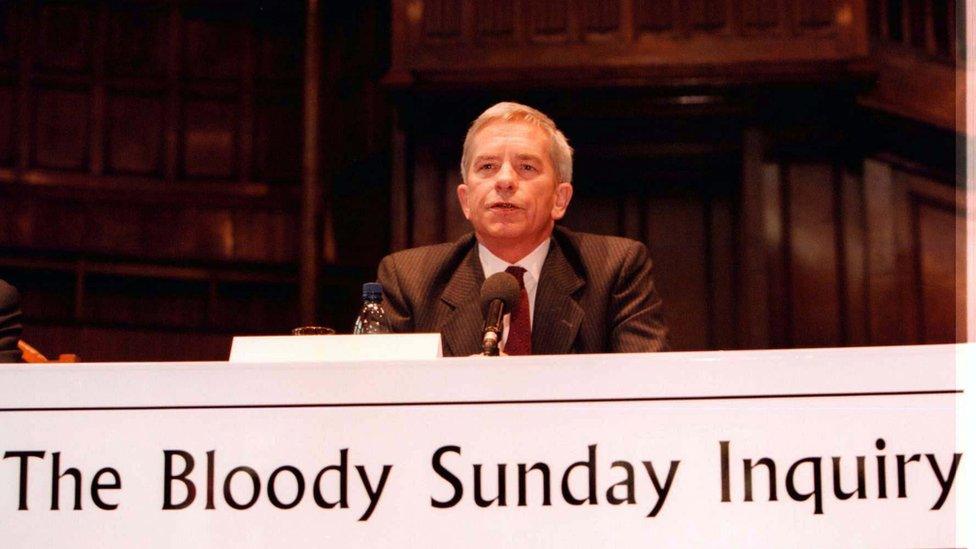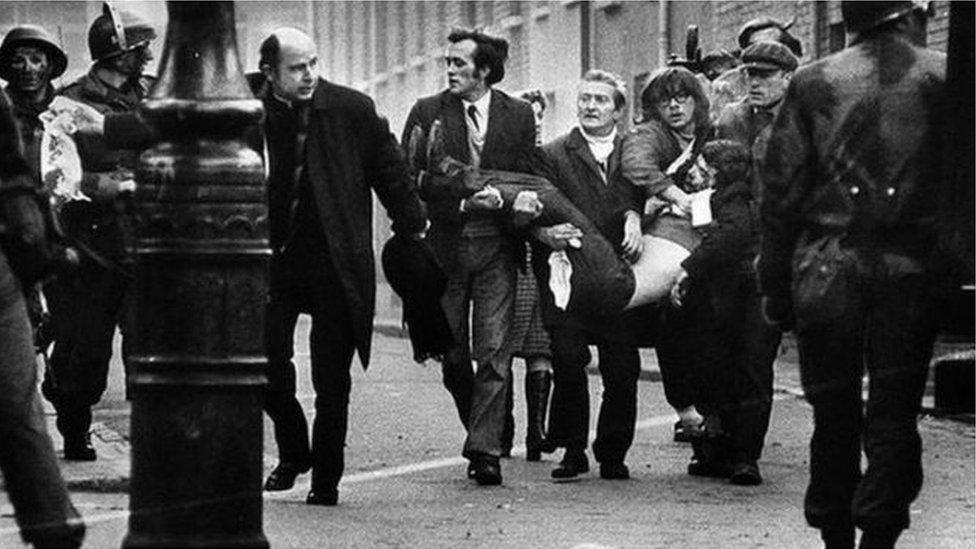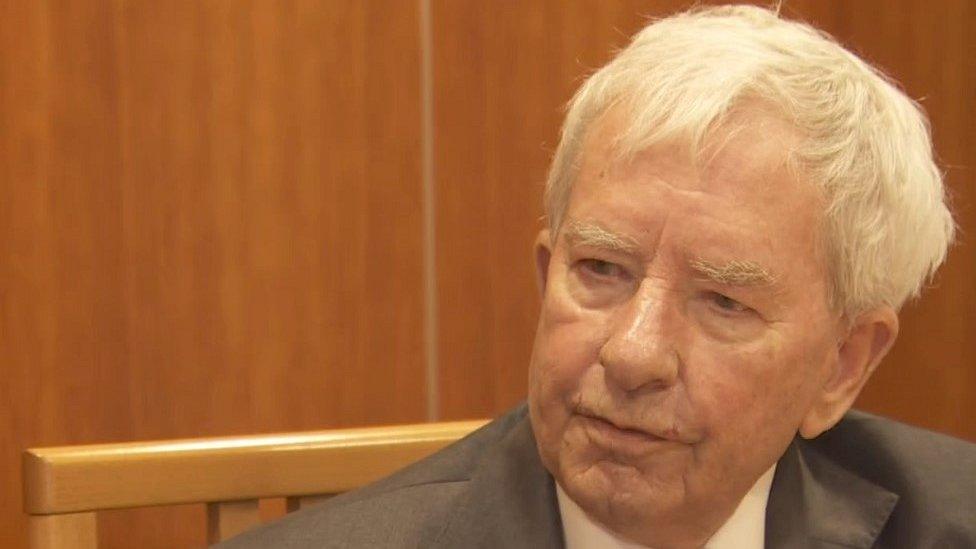Lord Saville: Prosecutions 'not Bloody Sunday inquiry aim'
- Published

Lord Saville chaired the Bloody Sunday inquiry, which looked into the events of 30 January 1972
A public inquiry into Bloody Sunday was not "a question of prosecutions", the judge who led it has said.
Thirteen people were shot dead in Londonderry when members of the Parachute Regiment opened fire on civilians in 1972.
On Thursday a decision will be made on whether or not 17 former paratroopers will be prosecuted for the killings.
Lord Saville told the BBC the purpose of the inquiry he led was "to try to find out what happened".
The events of 30 January 1972 became one of the most infamous incidents in the history of The Troubles.
Thirteen people were killed and 15 injured on January 30, 1972, when troops fired more than 100 times as trouble broke out at a civil rights march.
One of the injured died five months later, but the Saville Inquiry said it was "not the result of any of the wounds he sustained on Bloody Sunday".
The Saville Inquiry was set up in April 1998 and lasted for 12 years.
It cost about £200m, making it the longest and most expensive public inquiry in British legal history, and led to then Prime Minister David Cameron apologising to the Bloody Sunday families.
He said the killings were "unjustified and unjustifiable".
The Police Service of Northern Ireland (PSNI) began a murder investigation in 2010 after the Saville Report said those who were killed or injured on Bloody Sunday were innocent.
Eighteen former paratroopers were reported to Northern Ireland's Public Prosecution Service over the killings.

Thirteen people were shot dead on Bloody Sunday
One of those soldiers died in 2018, and a decision on whether or not to prosecute the other 17 for criminal offences is due on Thursday.
Lord Saville is aware of this and the sensitivities around it, but he is keen to stress the difference between his inquiry and any criminal investigation by police.
"We were not there for that purpose - we were there simply to try to find out what happened," Lord Saville told the BBC.
When asked if he accepted that without the Saville Report the prospect of former soldiers being prosecuted may not have happened, he said: "I simply don't have the answer. The campaign by the families was for a new inquiry.
"Some thought that those soldiers who were found responsible should be prosecuted but overall the campaign for Bloody Sunday originally was for an inquiry to find out what happened and why, rather than a question of prosecutions."
Former soldiers were granted anonymity and assured that their evidence to the Saville Inquiry wouldn't be used in any subsequent criminal proceedings.
'Assurances'
"If we had not given those assurances, backed by the director of public prosecutions, people could quite legitimately have refused to answer questions on the grounds that answering might incriminate them," said Lord Saville.

"We were there simply to try to find out what happened," said Lord Saville of his £200m inquiry
"So, we were there to find out what happened rather than investigating criminal offences. We sought assurance and gave it to those people, which is protected in law."
When asked if he, like many, took the view that the Saville Report would draw a line under Bloody Sunday, he replied: "I didn't know what was likely to happen. We hoped the inquiry would help the situation in Ireland and I think and hope it did to a degree.
"The question as to whether it draws a line under events or whether there should be prosecutions is not one for me, it's one for politicians and prosecuting authorities.
"If people want more and feel that justice can only be served by prosecutions against those that they believe to be responsible, then that is a matter again on which I can't really comment."
"I think we did a pretty thorough job and I was satisfied we had done a fair job at finding out what happened that day as was realistically possible."
He says the prospect of prosecutions hasn't changed his view in any way.
Lord Saville said that a decision on prosecutions "is not a matter for me and I have no particularly strong views about it".
He added: "Our job was to do as thorough and fair a report as we could as to what happened on that day."
- Published6 March 2019

- Published25 January 2019
